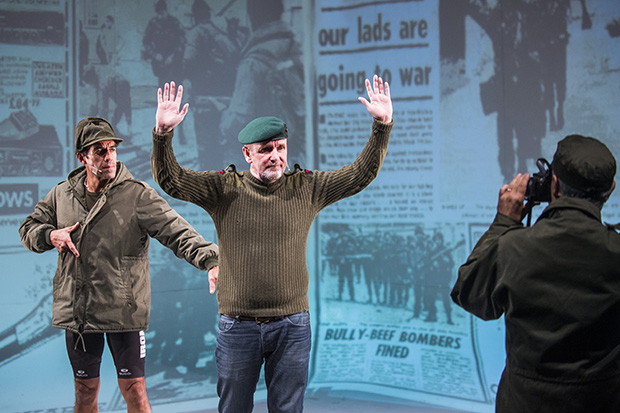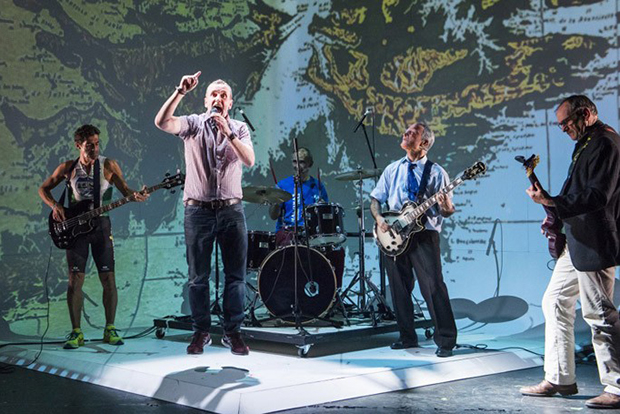Under the Radar 2019: Real Veterans Tell War Stories in Minefield

(© Tristram Kenton)
Few Americans know much about the Falklands War (or Guerra de las Malvinas), but this two-month brawl between Argentina and the United Kingdom over some sparsely populated rocks in the South Atlantic haunts the six men appearing in Minefield, written and directed by Lola Arias. This thrilling live documentary features veterans from both sides appearing on the same stage, and their memories of both pride and humiliation tell us a lot about what drives conflict today.
There's Lou Armour, whose photo ran in newspapers around the world when he and the small garrison of Royal Marines surrendered following Argentina's invasion of the islands. Ruben Otero is former sailor and survivor of the Belgrano, the torpedoed Argentine cruiser that went down with 323 souls (half the total Argentine death toll). Sukrim Rai is a Gurkha, part of a 200-year tradition of Nepalese warriors serving the British crown (and special target of Argentina's wartime propaganda).
Through the stilted, unemotional speech of old soldiers, these nonprofessional actors drive home the reality of the conflict. It feels like hearing war stories from six uncles, men who grew up in very different circumstances around the world, but who, through the magic of globalization, come together to perform a mean cover of the Beatles classic "Get Back" (yes, this really happens in the show).

(© Mara Isaacs)
Arias conveys both gravity and levity through stripped-back theatricality: Andrea Piffer's no-nonsense costumes hang on racks on the side of the stage. Mariana Tirantte's open set design is able to transition instantly through Martin Borini's video, projected on a concave backdrop center stage. Occasionally, the performers talk about disputes in rehearsing this extraordinary piece, like the sticky subject of sovereignty (all the Argentine actors say "Malvinas," while the Brits say "Falklands").
It feels significant that the actors are now in their 50s and 60s, an age in which many men turn to sports cars, mistresses, and reactionary politics in order to prove something. What was this war but an assertion of virility, both on the part of a fascist dictatorship and a dying empire? The fact that all six performers come off as six of the most humble men you could ever meet suggests that they've already lived through that charade, and are happy to leave it behind in the former century.










